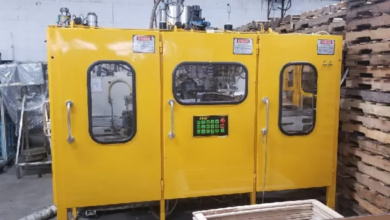Wiring Methods of Heating Elements
Heating elements are essential components in a variety of industrial and household applications, from electric ovens to industrial furnaces. The efficiency and performance of these elements largely depend on the quality and method of wiring used. Selecting the right heating element wire and wiring method is crucial for optimal performance, safety, and longevity of the heating system. Proper wiring ensures that the heating element delivers consistent heat output while minimising the risk of overheating or failure.
Types of Heating Element Wire
When it comes to wiring heating elements, the choice of wire plays a critical role. Common types of heating element wire include:
Nichrome Wire (80/20): One of the most popular choices for heating elements due to its high resistance and ability to withstand high temperatures. Nichrome 80/20, consisting of 80% nickel and 20% chromium, is known for its durability and efficient heat generation.
Kanthal Wire: Another widely used heating element wire, Kanthal, is an alloy of iron, chromium, and aluminum. It’s known for its high-temperature resistance and long life, making it ideal for high-power applications.
Copper Nickel Wire (CuNi): Used in applications where moderate temperatures are required, copper-nickel wire offers good resistance and thermal stability.
Wiring Methods for Heating Elements
Proper wiring of heating elements is essential to ensure their efficient operation and to prolong their lifespan. Here are some common wiring methods used for heating elements:
1. Parallel Wiring
Description: In parallel wiring, each heating element is connected across the same voltage source. This means each element receives the full voltage, ensuring consistent performance across all elements.
Advantages: It provides uniform heating and allows for the independent operation of each element. If one element fails, the others continue to operate.
Applications: Used in heating systems where uniform temperature distribution is crucial, such as in electric heaters and ovens.
2. Series Wiring
Description: In series wiring, heating elements are connected end-to-end, forming a single path for the current to flow. The voltage is divided among the elements, with each element receiving a portion of the total voltage.
Advantages: Reduces the total current flow, which can be beneficial in systems with limited power capacity.
Applications: Suitable for applications where voltage needs to be reduced across multiple elements, such as in some laboratory equipment.
3. Combination Wiring
Description: Combination wiring involves using both series and parallel wiring methods in a single heating system. This approach provides greater flexibility in controlling temperature and power distribution.
Advantages: Offers the benefits of both parallel and series wiring, allowing for tailored heating solutions.
Applications: Used in complex heating systems where precise temperature control is required, such as in industrial furnaces.
Key Considerations for Wiring Heating Elements
Wire Selection: Choose the appropriate heating element wire based on the operating temperature, environment, and power requirements. Nichrome 80/20 is a versatile choice for many applications.
Insulation: Proper insulation is essential to prevent electrical short circuits and ensure safe operation. Select insulation materials that can withstand the operating temperatures.
Power Source Compatibility: Ensure that the wiring method is compatible with the power source and the overall design of the heating system.
Safety Precautions: Follow safety guidelines and best practices when wiring heating elements to minimise the risk of electrical hazards.
Conclusion
Selecting the right heating element wire and wiring method is crucial for the effective operation of heating systems. Whether you opt for parallel, series, or combination wiring, understanding the benefits and applications of each method can help you achieve the desired performance and safety. For high-quality heating wire and expert guidance, trust TempsensInstrument Pvt. Ltd.to provide the best solutions tailored to your heating needs.


